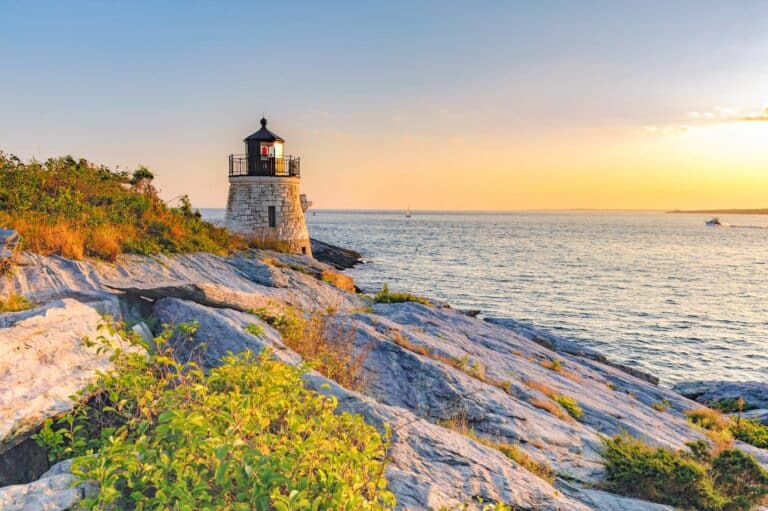The vacations I’ve taken with my husband, kids, and our family — parents, siblings, niece/nephews — have been some of my very favorite. (Especially when there was a beach involved, though that’s likely just a personal preference.) But if it seems like more and more people are talking about trips with their extended family, it’s not just a coincidence.
“Multi-generational travel has definitely been on the rise,” says Devaki Das, a luxury travel expert and founder of Weave a Thousand Journeys.
Why more people are traveling with extended family
A big piece of it has to do with the pandemic, including both the shift to more flexible schedules and the separation people dealt with, says Das. “Post-Covid, there’s a strong desire to reconnect and make up for lost time, leading to a surge in multi-generational travel,” she explains.
In fact, James Cole, the founder and CEO of Panache Cruises, a luxury and ultra-luxury cruise retailer, says that since the pandemic, they’ve seen a 37% increase in multi-gen bookings. “I think the pandemic delivered a huge wake-up call for us all,” he says.
Another reason: The recognition of milestone moments. “We have also found that in families where a young adult is graduating university and is at the cusp of taking their first steps into the real world, families know it’s going to be so much harder once the young adult begins a new job with limited vacation time, etc., so right after college graduation is the time they wish to embark on an amazing multi-generational vacation together,” explains Das.
And there are lots of upsides to traveling with extended family — and not just that there are built-in babysitters to take care of small kids.
“Traveling with different generations brings together a blend of wisdom, curiosity, and excitement that creates unforgettable moments and stories from multiple viewpoints,” explains Das. It also helps strengthen family bonds and create memories.
“These trips are more than vacations — they help build a family’s legacy,” she says.
Tips for planning a multi-generational trip
The actual logistics of pulling together a trip like this can sometimes be tricky — least of all because you’ve got more people (and more opinions). Here, Das and Cole offer up a few planning tips:
Start sooner than you think.
“Starting at least 6 to 8 months in advance helps ensure everyone’s availability and gives you time to find suitable accommodations, activities, and transport options,” advises Das. Extend that to a year out if you’re planning for something specific, like staying in a villa or chateau in Italy or France, for example, she says.
Cole echoes that when it comes to booking a cruise. “Specialist accommodations often get booked up very quickly, especially during school vacation periods,” he says, noting that if you need an accessible room or want rooms to connect, doing it early is essential.
Have various activities in mind.
You want to make sure there are choices for all age groups, says Cole. “A 7-year-old child will have little interest in fine dining restaurants or late-night stage shows when they should be in bed. Similarly, grandparents will not want to spend their entire holiday making Legos or getting their face painted,” he says. So while compromise will no doubt be necessary, having options available that cater to different ages and interests is key.
Das offers this example from a recent European trip she booked for a family of 10, whose group ranged in age from 76 to 11 year old. “We have planned a range of activities for everyone, from exploring Rome in a golf cart, [which] is perfect for all ages, including family members with mobility issues, to “a day in the life of a gladiator” — an immersive experience for kids and teenagers,” she says. “In Barcelona, the teenagers are going to spend a day with a graffiti artist while older members of the family enjoy a paint and wine workshop.”


Two activities Das says tend to work for all ages:
- A minivan with a guide and a driver for sightseeing, which is easier than a walking tour and offers a chance to see a lot in one shot.
- A family cooking class. This “allows for as much or as little participation as one would like and is a lot of fun for the whole family,” she says.
Know that you might split up — and that’s ok.
While it can be tempting to want to do everything together to max bonding time, it’s not always realistic — or a good idea. “It is quite common for young families to book completely different shore excursions from grandparents, for example, but then meet up for dinner in the evening,” says Cole. “Flexibility is key!’”
Avoid trying to do all the things.
“Plan for some down time each day and definitely plan for a day of relaxation after every three days of activities,” Das suggests. This way, both older adults and little kids get the downtime they need. “It’s also smart to spend more time at fewer places rather than trying to see everything. A vacation should never be a test of endurance and it’s never more true than when planning a multi-gen vacation,” she says.
Talk about money.
The key? Open communication — and making sure everyone feels comfortable, says Das.
- If you’re dividing the costs evenly, Das notes that, “it’s essential to have a chat about how you’ll handle the finances before you go. Some families like to take turns buying groceries or covering different expenses, while others prefer to keep track of who’s paid for what on a shared spreadsheet or app.”
- If one person/family, like grandparents, is covering most of the trip, Das says, “try to find small ways to contribute, like offering to pay for dinner one night, buying snacks for a day trip, or finding another way to show your appreciation.”
“Keeping money matters clear and open helps avoid misunderstandings and ensures everyone enjoys the trip without any hidden worries,” she notes.
Use a travel specialist.
Both Das and Cole note that working with a professional can make the whole process easier. “Don’t hesitate to get advice from a travel advisor who can help you find the best spots that suit everyone’s needs — from accessible accommodations to kid-friendly activities, and even help with booking everything.” And as Cole points out, someone has likely already asked the questions you have — and a specialist can help find the exact options you need.
Keep accessibility and inclusivity top of mind.
“It’s essential to choose a place where every family member feels comfortable and safe,” says Das. And as far as accessibility, keep that in mind for both young and older travelers.
For example, for someone with mobility issues, Das will book point-to-point service with drivers or create experiences that are shorter or don’t involve as much walking. When booking a cruise, Cole also suggests checking the deck plans to make sure you’re near an elevator or restaurants and that you’re not too close to a noisy entertainment venue to make it easier for kids to fall asleep.
Deciding where to go
Sometimes, the hardest part can be picking the actual destination. A few ideas:
Consider a cruise.

There’s lots of flexibility all in one place, says Cole. “Many ships have amazing facilities for children, with dedicated kids’ clubs, water slides, bowling alleys, fairground rides, and even high ropes courses,” he says. “Adults can unwind in the spa or maintain their fitness in the ship’s center.” Plus, there are lots of activities while at sea, like art classes and cooking demos, as well as childcare options for when parents and other adults want to see a show or head to the casino.
- Royal Caribbean, MSC Cruises, and Norwegian Cruise Line all service this demo well, says Cole.
- For ultra-lux, consider Explora Journeys, part of MSC Cruises. “It is the only ultra-luxury cruise line with dedicated facilities for guests aged 6 to 17. Each of their ships offer 78 multi-generational friendly connected suites, too,” says Cole.
Opt for experiential: “Look for a destination that offers a mix of activities and attractions,” advises Das. “Think places with a little bit of everything — beautiful parks, cultural attractions, relaxing spots, and fun activities.” For example:


- The Dordogne region in France, “which offers everything from ancient sites, cave art, opportunities for canoeing on the Dordogne river, exploring picturesque villages like La Roque-Gageac or enjoying gastronomic delights in Sarlat-la-Canéda,” offers Das.
- Italy, including Rome, Florence or Tuscany. Tuscany, with its landscapes, villages, and activities, is also a great place to arrange wine tours for adults, farm visits for kids, and great hiking for everyone, says Das.
- Spain, including places like Barcelona and Cordoba. Of Cordoba, Das says: “The Royal Stables of Córdoba are a historic gem, perfect for all ages. They offer a peek into Spain’s rich equestrian tradition and the majestic Andalusian horse.”
- Portugal, including Lisbon, Porto and Algarve. “The Algarve’s stunning coastline is perfect for family beach days,” says Das. “Safe swimming spots for kids and plenty of relaxation for grandparents.”




